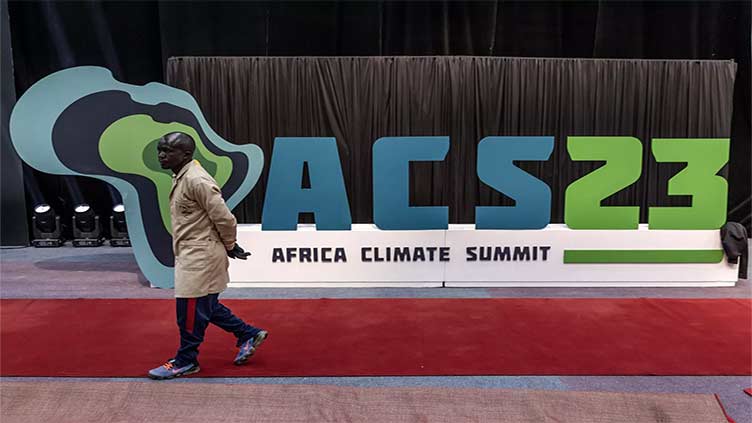Al Jazeera will look to pursue all possible legal action “until the end” to challenge Israel’s ban on its operations there, the TV network’s news director told AFP in an interview.
The Qatar-based station was taken off air in Israel after Prime Minister Benjamin Netanyahu’s government voted on Sunday to shut it down over its coverage of the Gaza war.
Speaking on Monday, Al Jazeera English news director Salah Nagm said the network would “follow every legal path”, adding: “If there is a possibility of challenging that decision we are going to pursue it until the end.”
Under a cabinet decision which Netanyahu said was “unanimous”, Al Jazeera’s Jerusalem offices were shuttered, its equipment confiscated and its team’s accreditations pulled.
“The equipment which was confiscated, the loss that we suffered from stopping our broadcast, all of that is subject matter for legal action,” Nagm said.
The Israeli government on Sunday said the order was initially valid for 45 days, with the possibility of an extension.
Hours later, screens in Israel carrying Al Jazeera’s Arabic and English channels went blank, apart from a message in Hebrew saying they had “been suspended in Israel”.
‘An action from the 60s’
The shutdown does not apply to the Israeli-occupied West Bank or Gaza Strip, from which Al Jazeera still broadcasts live on Israel’s war with Hamas.
Al Jazeera immediately condemned Israel’s decision as “criminal”, saying on social media site X that it “violates the human right to access information”.
But Najm downplayed the ban’s impact on Al Jazeera’s coverage of the war and on the public’s ability to access its content, even with its website now blocked in Israel.
“It’s an action from the 60s rather than the 21st century to take such a decision of shutting down,” he said, explaining the channel could rely on other sources for information without “people on the ground”.
“I know people that have VPN can see us online anytime,” the news director said referring to virtual private networks that establish protected internet connections and can allow users to access the internet as if they were in a different country.
The decision came after Israel’s parliament last month voted to pass a new national security law granting senior ministers powers to ban broadcasts by foreign channels over threats to security.
In his statement on Sunday, Netanyahu charged that “Al Jazeera correspondents have harmed the security of Israel and incited against IDF (Israeli military) soldiers”.
‘Arbitrary decision’
But Nagm questioned which Al Jazeera broadcasts the Israeli government considered a security threat, calling the ban an “arbitrary decision”.
Since the start of the Gaza war, Al Jazeera’s office in the Palestinian territory has been bombed and two of its correspondents killed.
“Al Jazeera has lost a few people, their families have suffered so that’s really different from other conflicts in this sense,” Nagm said.
Al Jazeera’s Gaza bureau chief Wael al-Dahdouh was wounded in an Israeli strike in December that killed the network’s cameraman.
Dahdouh’s wife, two of their children and a grandson were killed in October in a bombardment of central Gaza’s Nuseirat refugee camp.
And Dahdouh’s eldest son, an Al Jazeera staff journalist, was killed alongside another journalist in Rafah in January when an Israeli strike targeted the car they were travelling in.
At least 97 journalists and media workers have been killed since the war began, among them Palestinians, Israelis and Lebanese, according to the Committee to Protect Journalists.
“That’s not something that we can just report politely,” Nagm said.
“We have to be wary and careful and alert the people of the nature of the war that’s going on and how deadly it is for the people and also for us as a profession.”
Post Views: 10


 Sports3 months ago
Sports3 months ago
 Fashion2 months ago
Fashion2 months ago
 Sports3 months ago
Sports3 months ago
 pakistan3 months ago
pakistan3 months ago
 World2 months ago
World2 months ago
 pakistan3 months ago
pakistan3 months ago
 World2 months ago
World2 months ago
 Sports2 months ago
Sports2 months ago























